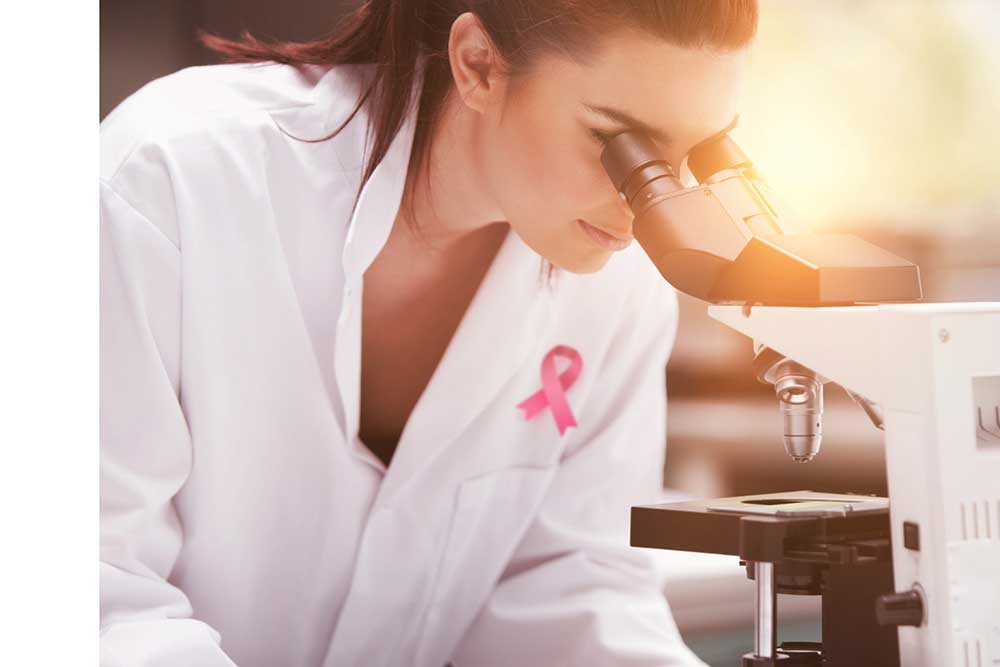
Keck Medicine of USC’s breast cancer team is currently offering more than 25 clinical trials
Can a patient’s own lab-modified T cells — a type of white blood cell that helps protect the body from infection – find and destroy cancer cells for patients with triple negative breast cancer, one of the most difficult types of breast cancer to treat?
Can a vaccine help fight metastatic breast cancer?
Can novel medications shown to be beneficial in advanced cancer be effective for those with early breast cancer?
These are just some of the studies our Keck Medicine of USC breast cancer experts have launched in their ongoing search for innovative breast cancer care for our patients.
While the medical field has seen tremendous improvements in breast cancer diagnosis and care over the last few decades, there is still more work to be done. This is especially true in the years after the COVID-19 pandemic, which saw a slowdown in clinical trial offerings and participation.
In an effort to give everyone diagnosed with breast cancer the best options possible, our breast cancer team, under the leadership of breast cancer oncologist Dr. Daphne Stewart, is currently offering more than 25 clinical trials. Potential enrollment in a clinical trial is based on factors that include a patient’s cancer type, stage, and family and personal history.
Our multidisciplinary breast cancer team of surgeons, radiation oncologists and medical oncologists meet weekly to review each patient’s case, which includes consideration of whether a clinical trial might be beneficial for the patient.
A clinical trial may not be available for all patients, but for many, it offers hope for better outcomes. Clinical trials also may benefit patients by paving the way for future therapies.
One of our clinical trials is examining curative therapy prior to surgery based on cancer gene profiling. This trial, known as the ISPY neoadjuvant trial, is for patients with early breast cancer who may benefit from systemic (whole body) therapy before surgery to improve their surgical and survival outcomes. They are treated with personalized novel medications based on their unique cancer gene profile, targeting the drivers of cancer growth.
And as mentioned above, we are also investigating several novel therapies for advanced breast cancer such as vaccines to stimulate immune cells to fight the cancer and T cell therapy. T cell therapy has already shown to be a successful treatment for blood cancers such as multiple myeloma and leukemia.
Other clinical trials may benefit patients by offering treatment plans that might prove less invasive or have fewer side effects. Our researchers are offering a post-treatment study for premenopausal women to de-escalate chemotherapy, which causes a range of side effects, by using less toxic and possibly more effective endocrine therapy instead. We are also examining if radiation, another staple for destroying cancer cells, can safely be skipped for some patients, potentially avoiding the side effects like fatigue and skin irritation.
Clinical trials push our knowledge of medicine and allow us to offer our patients new hope and potentially better outcomes. October is Breast Cancer Awareness Month, and I am thankful for all our breast cancer practitioners and researchers who are committed to our patients’ breast health. Their dedication and caring is boundless, as their ambitious clinical trial program clearly shows.
A clinical trial may not be available for all patients, but for many, it offers hope for better outcomes.
Rod Hanners, CEO of Keck Medicine of USC
Topics
